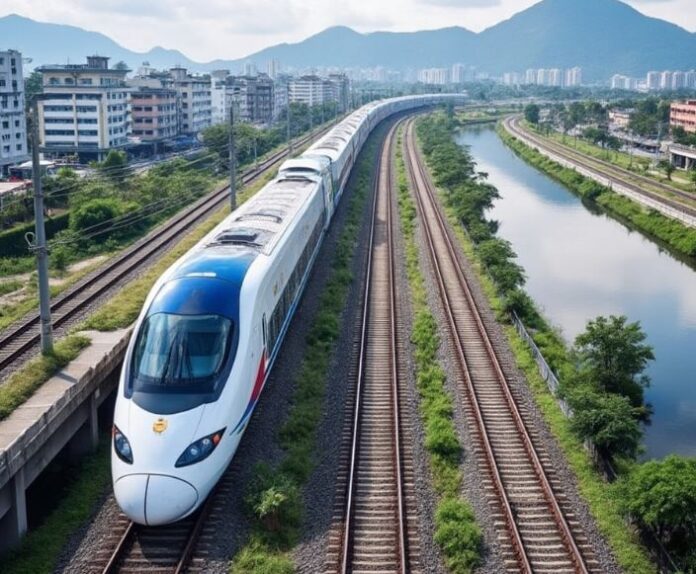Vietnam’s legislative body has approved a massive $67 billion investment into a high-speed railway project aimed at connecting the nation’s north and south. The rail line, which will span from Hanoi to Ho Chi Minh City, is expected to transform travel within the country, reducing the journey from a current 30-hour trip to just five hours by the year 2035. This development promises to catalyze economic growth and enhance Vietnam’s appeal to global investors.
Details of the Railway Project
- Route: The rail line will stretch over 1,541 kilometers, crossing through 20 cities and provinces.
- Speed: Trains are designed to travel at approximately 350 kilometers per hour.
- Completion: The project is slated for completion in 2035, with construction set to commence in 2027.
The initiative underscores Vietnam’s commitment to modernizing its transportation network, which is expected to not only facilitate quicker travel but also stimulate economic activity across the route.
New Data Protection Legislation
Simultaneously, Vietnam introduced stringent data protection laws, tightening the regulations on personal data processing and cross-border data transfers. The new legislation:
- Limits Data Transfer: Enhances restrictions on how personal data can be moved overseas, aiming to protect Vietnamese citizens’ privacy.
- Government Access: Provides clearer guidelines for government access to data under specific conditions, balancing security with privacy rights.
This legislative update has sparked concerns among U.S. tech companies, who argue that these laws could complicate their operations within Vietnam. Critics suggest that the regulations might be too restrictive, potentially impacting international business practices in the tech sector within the country.
Reactions and Implications
The high-speed rail project has been met with optimism regarding its potential to revolutionize travel and contribute significantly to Vietnam’s GDP. However, the data law has created a stir among tech giants, highlighting the tension between national sovereignty over data and the global nature of technology business. The government sees these laws as essential steps in safeguarding its citizens’ privacy in an increasingly digital world.
These developments reflect Vietnam’s strategic push towards becoming a modern, tech-savvy nation while addressing infrastructure needs that could propel it into the future. The implications of these laws and projects will be closely watched by both domestic and international stakeholders, particularly in how they balance economic ambition with regulatory oversight.



